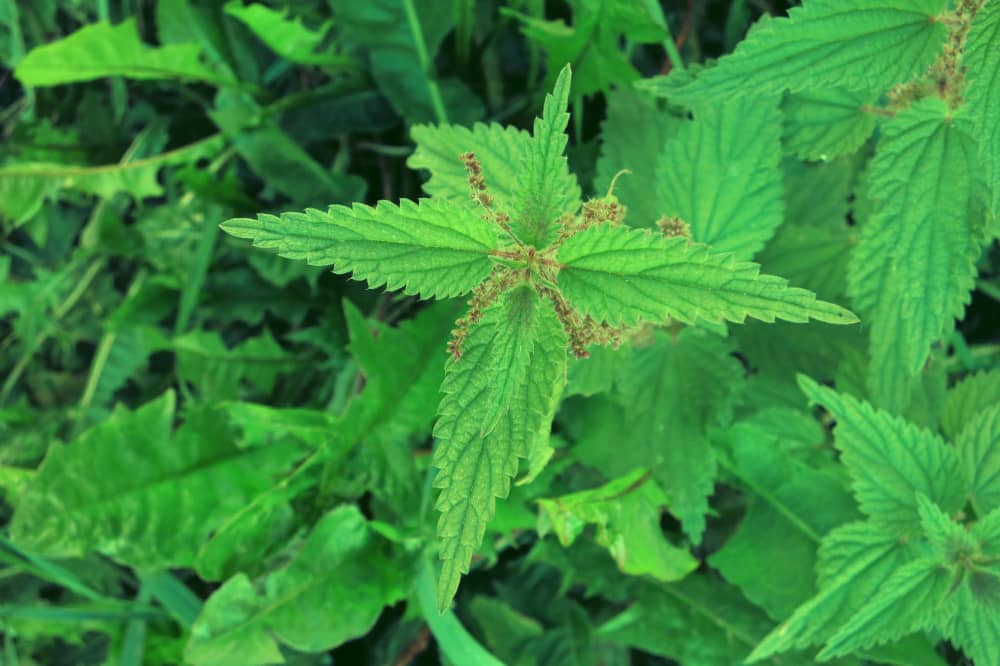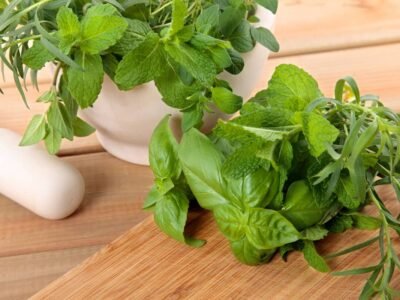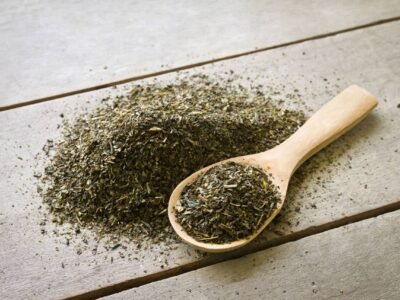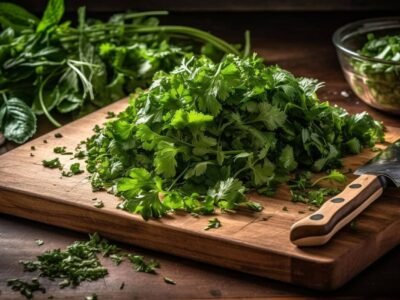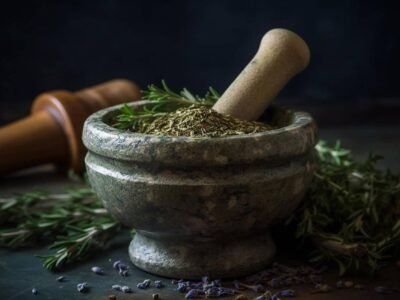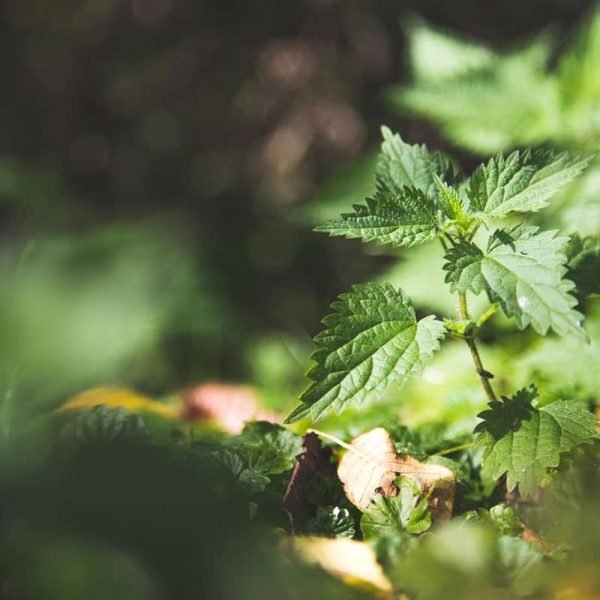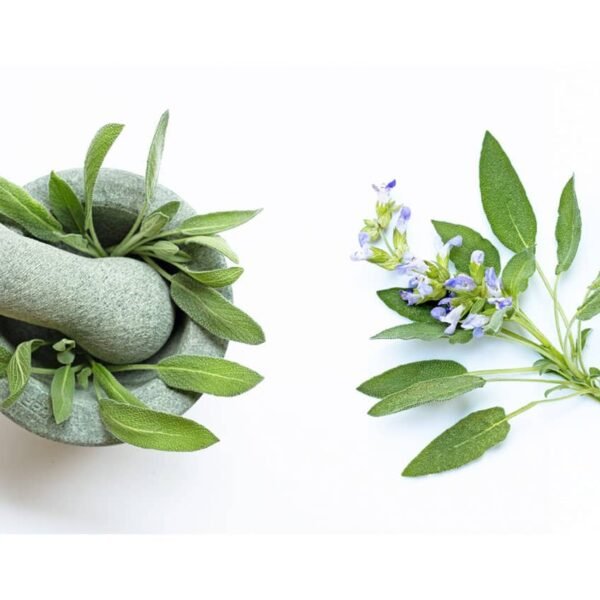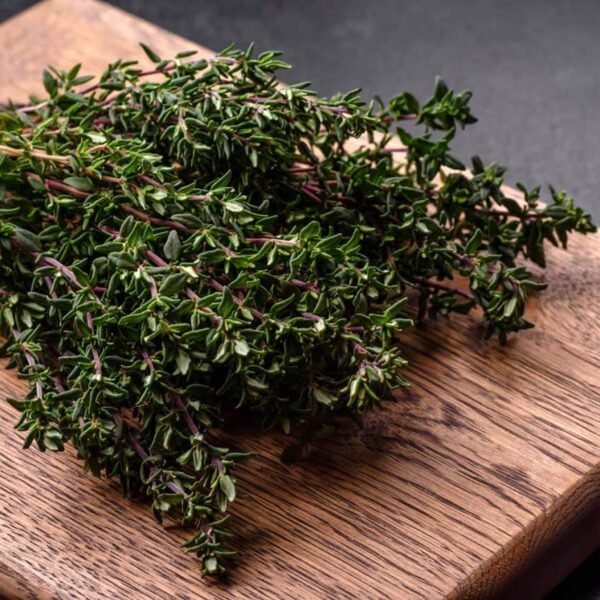Nettle, scientifically known as Urtica dioica, is a perennial herbaceous plant that has been revered for centuries due to its remarkable health benefits. With its rich concentration of vitamins, minerals, and antioxidants, nettle leaves have become a popular ingredient in various herbal remedies and natural dietary supplements.
Packed with essential nutrients like iron, calcium, and vitamins A and C, nettle offers a range of health-promoting qualities that can support everything from immune function to joint health.
The versatility of nettle doesn’t stop there. This potent herb has long been used as a traditional remedy for allergies and respiratory conditions such as hay fever and asthma. The leaves contain compounds known as flavonoids that possess anti-inflammatory properties which may help alleviate symptoms associated with seasonal allergies.
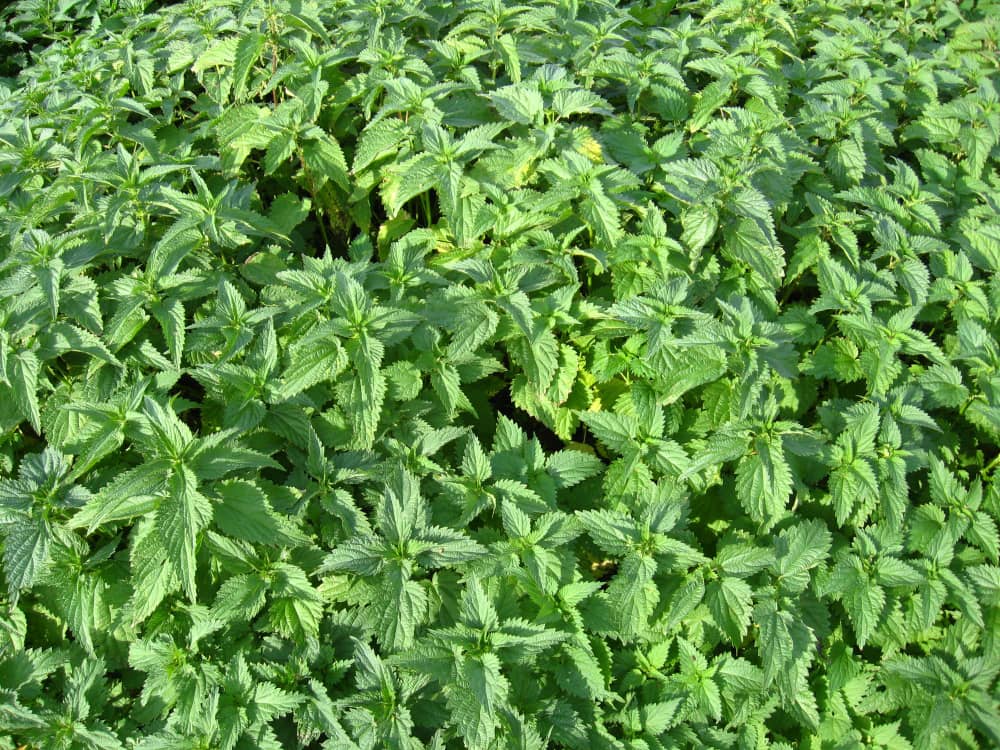
Overview of Nettle
Let’s explore nettle, its characteristics, historical uses, and potential therapeutic properties. From its distinctive stinging hairs to its rich nutrient profile, nettle has become a popular ingredient in traditional medicine and culinary practices worldwide.
Nettle is native to Europe, Asia, North Africa, and North America and belongs to the family Urticaceae. It typically grows in temperate regions with moist soil conditions and can reach heights of up to six feet.
What is Nettle?
Nettle, scientifically known as Urtica dioica, is a perennial flowering plant that belongs to the Urticaceae family. Native to Europe, Asia, and North America, it is characterized by its stinging hairs that deliver a painful sensation when touched. Despite this prickly defense mechanism, nettle has been used for centuries for its medicinal properties and as a food source.
The leaves of nettle are rich in essential nutrients like vitamins A and C, iron, calcium, and potassium. They have long been recognized for their potential health benefits such as anti-inflammatory properties and relief from allergies. Nettle extract is often used in traditional medicine to treat conditions such as arthritis, urinary tract infections, and hay fever.
In addition to its medicinal uses, nettle has also found culinary applications. The young leaves can be cooked or steamed similarly to spinach or added to soups and stews. Some even use dried nettle leaves to make tea or infusions that are believed to help with digestion and detoxification processes within the body.
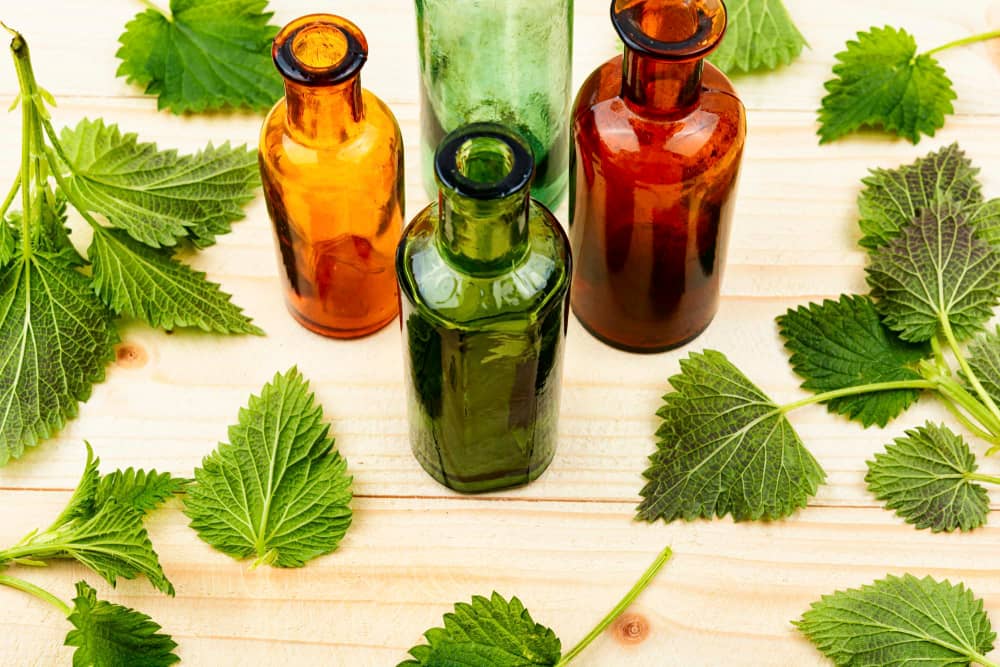
Benefits of Nettle
Nettle, also known as stinging nettle, is a plant that has been used for centuries due to its numerous health benefits. One of the main advantages of nettle is its ability to reduce inflammation in the body. The plant contains anti-inflammatory compounds, which can help alleviate symptoms associated with conditions like arthritis and allergies.
Additionally, nettle has been found to have diuretic properties, meaning it helps increase urine production and flow in the body. This can benefit individuals with urinary tract infections or those who struggle with water retention. Furthermore, nettle may also support healthy blood sugar levels by improving insulin sensitivity and reducing blood glucose levels.
Nettle offers a wide range of benefits due to its anti-inflammatory and diuretic properties. Incorporating this plant into your diet or using it as a supplement may help improve various aspects of your health and well-being. However, it is always advisable to consult with a healthcare professional before adding any new herbal remedies or supplements to your routine.
Uses of Nettle
Nettle, also known as Urtica dioica, is a perennial plant that is widely distributed across the globe. It has a long history of use in various cultures for its medicinal and culinary properties. In terms of medicinal uses, nettle has been traditionally used to treat conditions such as allergies, arthritis, and urinary tract infections. Its anti-inflammatory properties have been found to be effective in reducing pain and swelling associated with these ailments.
Moreover, nettle is rich in vitamins A, C, and K and minerals like iron and calcium. This makes it a nutritious addition to one’s diet. The leaves of the nettle plant can be cooked or dried to make tea infusions or added to soups and stews for added flavor and nutrients. Additionally, nettle root extract has gained popularity for its potential benefits in promoting prostate health by reducing symptoms associated with benign prostatic hyperplasia (BPH).
Furthermore, nettle fibers are also extensively used in the textile industry due to their strength and durability. Nettle fabrics have a similar texture to linen but are more sustainable since they require fewer resources than cotton or synthetic fibers. Nettle fiber can be blended with other materials like wool or silk to create unique textiles that are both eco-friendly and aesthetically pleasing.
Nettle offers a wide range of uses – from its medicinal applications in treating various ailments to its nutritional value when consumed as food or herbal tea infusion.
Side Effects of Nettle
Nettle, also known as stinging nettle, is a perennial plant native to Europe, Asia, and North Africa. It has been used for centuries in traditional medicine to treat various ailments due to its many beneficial properties. However, like any other herb or supplement, nettle can have side effects that should be considered before using it.
One of the most common side effects of nettle is skin irritation. This is because the plant’s leaves and stems are covered in tiny hairs that release chemicals when touched, causing a stinging sensation and redness on the skin. Although this reaction is usually mild and temporary, some individuals may experience more severe allergic reactions such as hives or difficulty breathing.
Another potential side effect of nettle is digestive upset. Some people may experience an upset stomach, bloating, or diarrhea after consuming nettle tea or supplements. This could be due to the plant’s high fiber content or its ability to stimulate the production of gastric acids.
Therefore, if you have a sensitive stomach or suffer from digestive issues such as irritable bowel syndrome (IBS), it may be best to avoid using nettle as it could exacerbate these symptoms.
In conclusion, while nettle offers numerous health benefits such as reducing inflammation and relieving seasonal allergies, it can also have certain side effects that should not be ignored. Skin irritation and digestive upset are among nettle use’s most commonly reported adverse reactions.
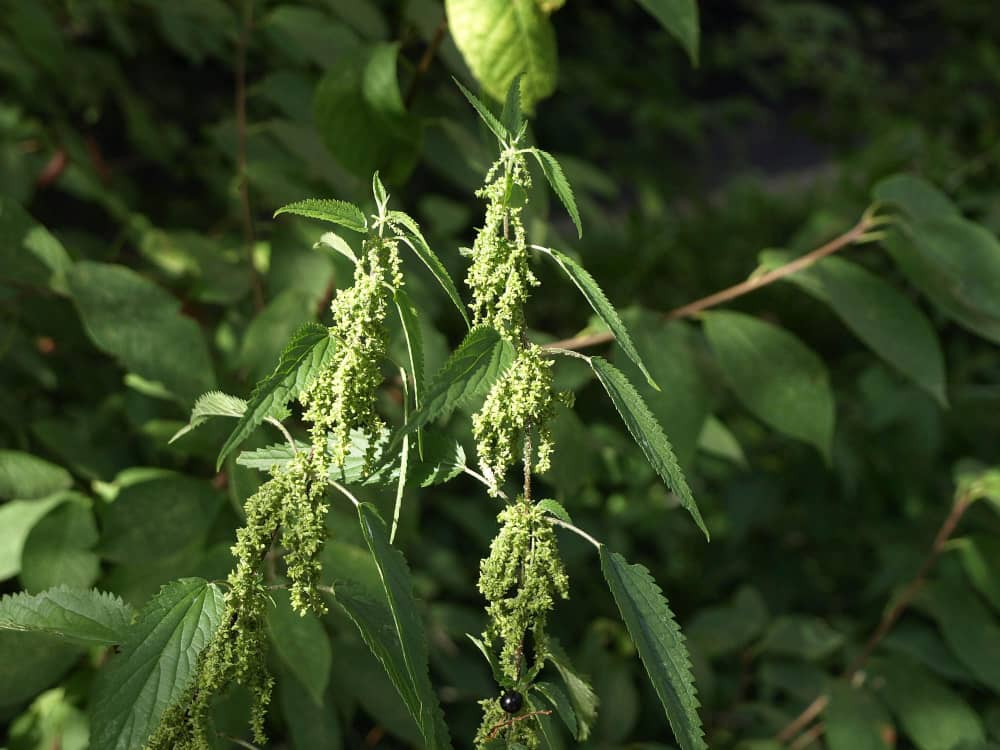
How to Prepare Nettle for Use
Nettle, also known as stinging nettle, is a versatile plant that has been used for centuries due to its numerous health benefits. It is rich in vitamins A and C, iron, calcium, and potassium.
Nettle can be consumed in various forms such as tea, tincture, or even cooked as a vegetable. However, before using nettle in any form, it is important to properly prepare it to remove the stinging hairs that can cause skin irritation.
To prepare nettle for use in tea or tincture, start by harvesting fresh nettle leaves using gloves to avoid getting stung. Rinse the leaves thoroughly under cold water to remove any dirt or debris. Once clean, you can either chop the leaves finely or leave them whole depending on your preference. For tea preparation, steep about 1 tablespoon of dried nettle leaves (or 2 tablespoons of fresh leaves) in boiling water for 5-10 minutes. Strain the mixture and your nettle tea is ready to enjoy!
If you plan on cooking nettles as a vegetable side dish or incorporating them into recipes like soups or pesto sauce, blanching them first is necessary to neutralize the sting and soften their texture. Boil a pot of water and add salt if desired. With gloves on, carefully place the nettles into boiling water for about 2-3 minutes until they turn bright green and wilt slightly.
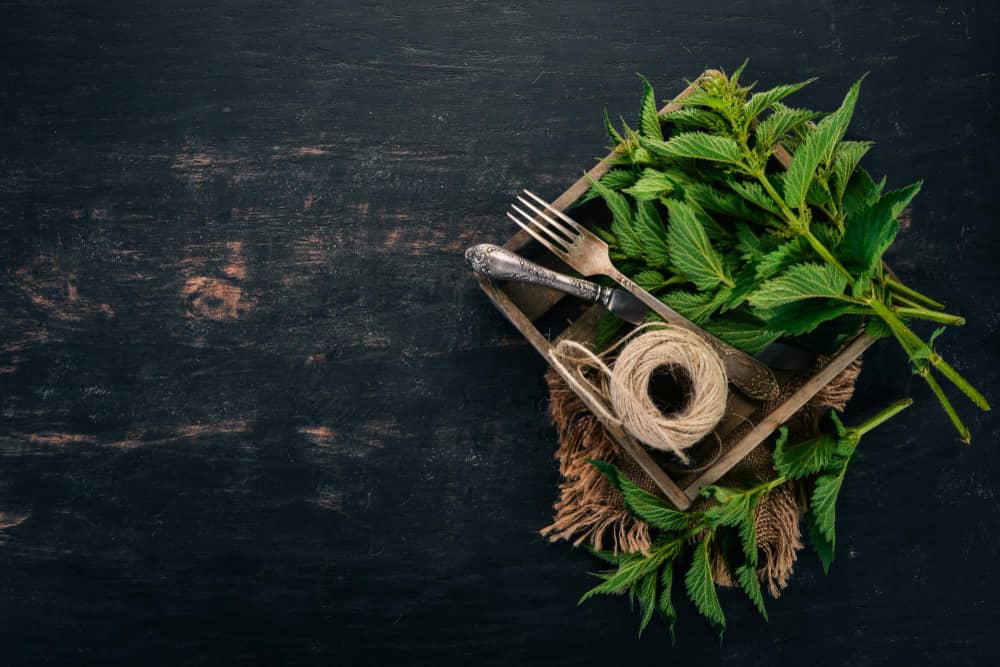
Recipes Using Nettle
Nettle, also known as stinging nettle, is a plant that belongs to the Urticaceae family. It is widely found in Europe, Asia, and North America. Despite its prickly nature due to tiny hairs on its leaves and stems that can cause skin irritation upon contact, nettle has been used for centuries for its medicinal properties and as a source of food.
Nettle is packed with nutrients such as vitamins A, C, and K, minerals like iron and calcium, as well as antioxidants. It has been traditionally used to treat various health conditions including allergies, arthritis pain relief, urinary tract infections, and even hair loss prevention. In addition to its medicinal uses, nettle can be incorporated into delicious recipes.
Recipes using nettle are gaining popularity among those seeking unique flavors and health benefits. One popular dish is nettle pesto pasta where blanched nettles are blended with garlic, pine nuts or walnuts, parmesan cheese, olive oil, salt,and pepper to create a vibrant green sauce that pairs perfectly with pasta.
Another option is nettle soup made by sautéing onions and garlic in butter before adding chopped nettles along with vegetable broth; after simmering until tender,the mixture can be pureed into a smooth soup for a comforting meal during colder months.
Interesting Facts About Nettle
Nettle, also known as Urtica dioica, is a perennial plant that belongs to the Urticaceae family. It is native to Europe, Asia, and North Africa but can now be found growing in temperate regions worldwide. Nettle has a long history of use for its medicinal properties and has been traditionally used to treat various ailments.
One interesting fact about nettle is that it has been used as a natural dye for centuries. The stems and leaves of the plant contain histamines and other chemicals that can be extracted to create vibrant green and yellow dyes. In ancient times, nettle was often used to dye fabrics such as linen and wool.
Another fascinating aspect of nettle is its nutritional value. Despite being considered a weed by many, this plant packs quite a punch when it comes to nutrients. Nettle leaves are rich in vitamins A, C, K, and several B vitamins. They are also an excellent source of minerals like calcium, magnesium, iron, and potassium. Additionally, nettle contains high levels of antioxidants that help protect the body against oxidative stress.
Side Effects of Nettle
Nettle is rich in nutrients and bioactive compounds, contributing to its numerous health benefits. However, like any other herbal remedy, nettle may also have some side effects that need to be considered.
One of nettle’s most common side effects is skin irritation or rash. This can occur when the skin directly touches the plant’s leaves or stem, causing itching, redness, and inflammation. Some individuals may also experience allergic reactions to nettle, which can range from mild symptoms like sneezing and nasal congestion to more severe reactions such as difficulty breathing or hives.
Another potential side effect of nettle is gastrointestinal discomfort. Some people may experience stomach cramps, diarrhea, or nausea after consuming nettle tea or supplements. This can be attributed to the plant’s natural diuretic properties and its ability to increase urine production.
While nettle offers many health benefits when used properly and in moderation, it is important to be aware of these potential side effects and consult with a healthcare professional before incorporating it into your routine.
Final Thoughts on Nettle
Nettle, also known as stinging nettle, is a perennial plant that has been used for centuries due to its various health benefits. This plant is rich in vitamins, minerals, and antioxidants, making it a valuable addition to any diet. Nettle has been traditionally used as a natural remedy for allergies, arthritis, and urinary tract infections. Its anti-inflammatory properties can help reduce pain and swelling in the body.
Moreover, nettle has shown promise in improving hair and skin health. The plant contains compounds that may stimulate hair growth and prevent hair loss when applied topically or consumed as a supplement. It can also soothe irritated skin conditions like eczema or acne when used in skincare products. Additionally, nettle tea is widely consumed for its potential diuretic effect on the body.
In conclusion, nettle is an incredibly versatile plant with numerous health benefits. Whether you consume it as a tea or incorporate it into your diet through supplements or recipes, this herb can relieve various ailments while promoting overall wellness.
However, it’s always advisable to consult with a healthcare professional before adding any new herbal remedy into your routine to ensure compatibility with existing medical conditions or medications you may be taking.

